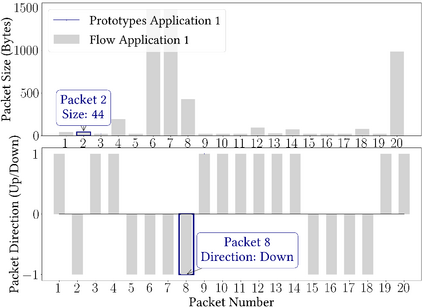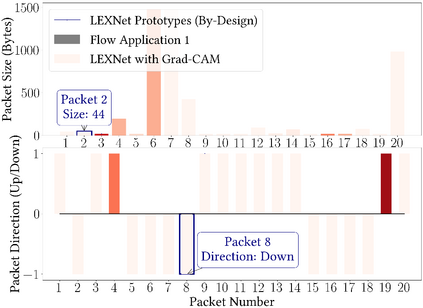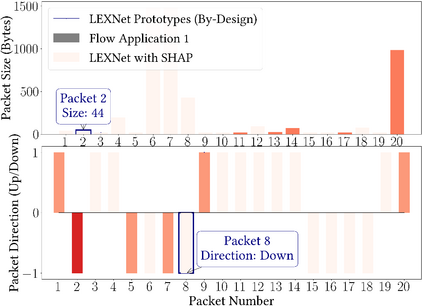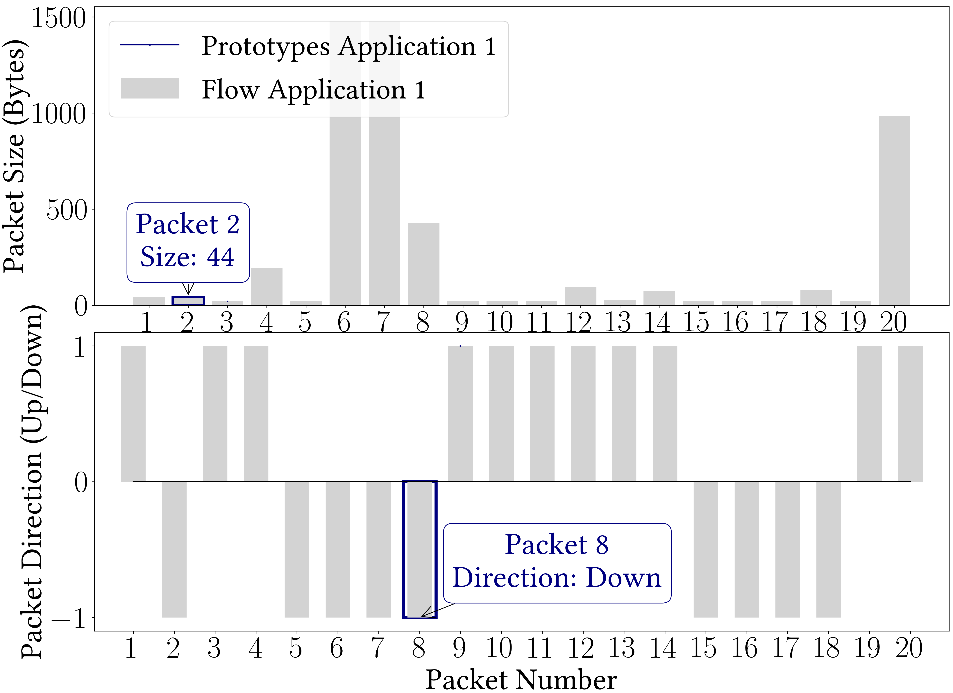Traffic classification, i.e. the identification of the type of applications flowing in a network, is a strategic task for numerous activities (e.g., intrusion detection, routing). This task faces some critical challenges that current deep learning approaches do not address. The design of current approaches do not take into consideration the fact that networking hardware (e.g., routers) often runs with limited computational resources. Further, they do not meet the need for faithful explainability highlighted by regulatory bodies. Finally, these traffic classifiers are evaluated on small datasets which fail to reflect the diversity of applications in real-world settings. Therefore, this paper introduces a Lightweight, Efficient and eXplainable-by-design convolutional neural network (LEXNet) for Internet traffic classification, which relies on a new residual block (for lightweight and efficiency purposes) and prototype layer (for explainability). Based on a commercial-grade dataset, our evaluation shows that LEXNet succeeds to maintain the same accuracy as the best performing state-of-the-art neural network, while providing the additional features previously mentioned. Moreover, we illustrate the explainability feature of our approach, which stems from the communication of detected application prototypes to the end-user, and we highlight the faithfulness of LEXNet explanations through a comparison with post hoc methods.
翻译:交通分类,即确定网络中流动的应用类型,是许多活动(例如入侵探测、路由)的一项战略任务。这一任务面临着目前深层学习方法无法解决的一些重大挑战。当前方法的设计没有考虑到网络硬件(例如路由器)通常使用有限的计算资源这一事实。此外,它们没有满足监管机构强调的忠实解释的必要性。最后,这些交通分类器是在小型数据集上评估的,这些数据集未能反映现实世界环境中的应用多样性。因此,本文为互联网交通分类引入了轻量、高效和可替换的单发脉动神经网络(LEXNet),这种网络依赖一个新的残余块(用于轻度和效率目的)和原型层(解释性)。根据商业级数据集,我们的评估显示,LEXNet成功地保持了与最佳状态和神经网络网络运行的相同准确性,同时提供了前面提到的附加特征。此外,我们用一个模型来解释我们通信的精确性模型,我们从终端的模型到终端的模型,我们用模型来解释我们的通信的精确性特征。








